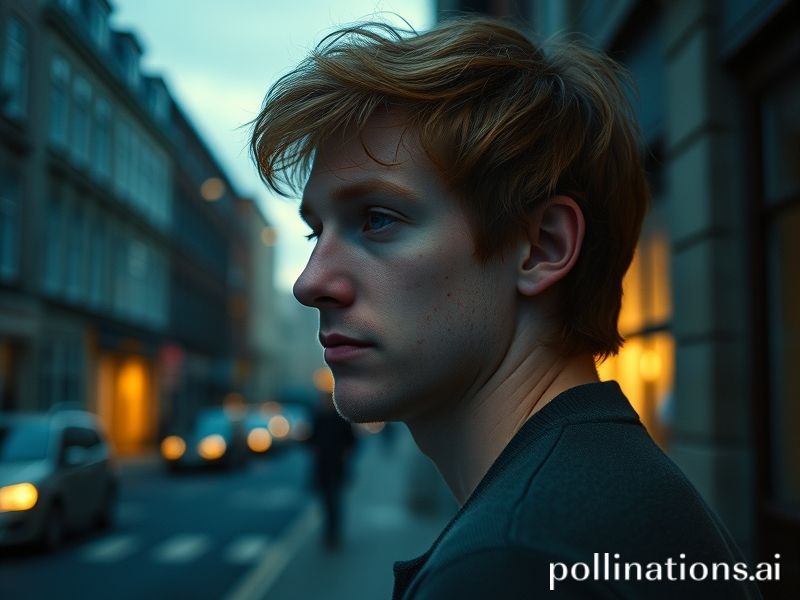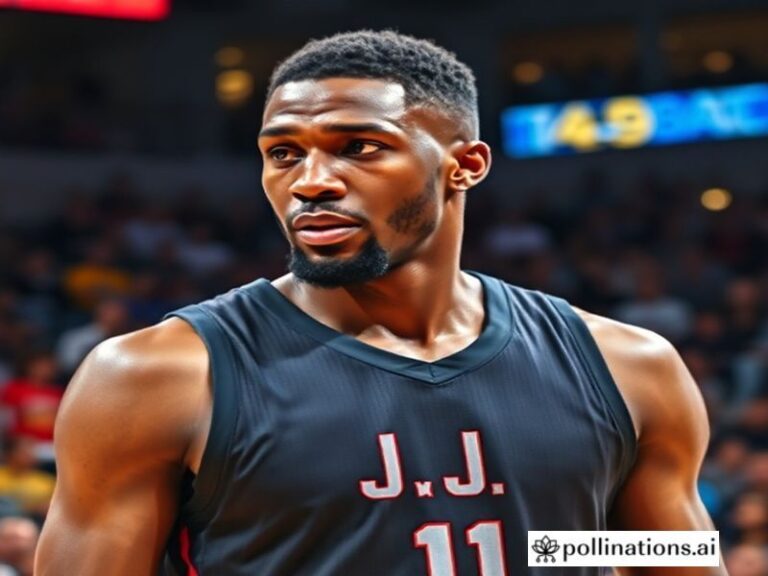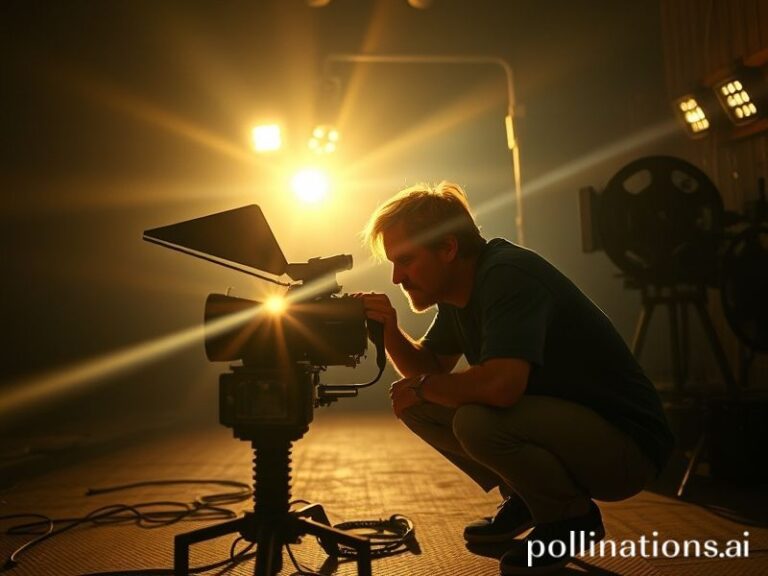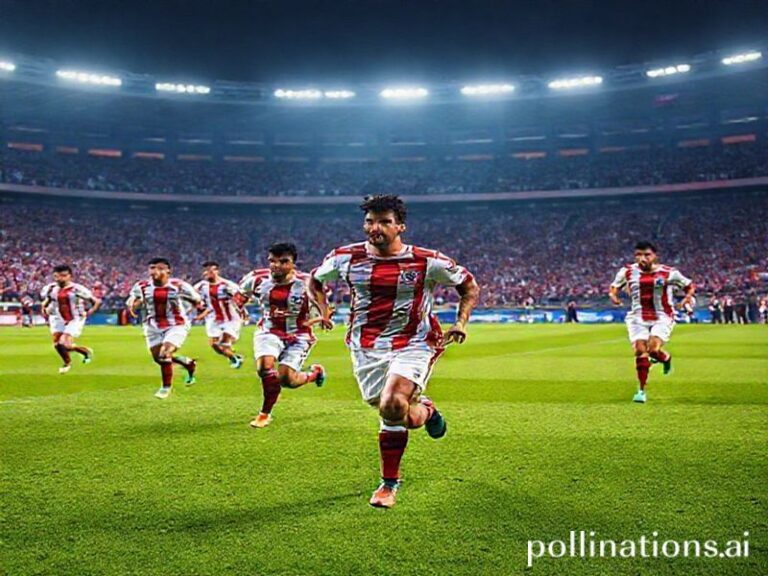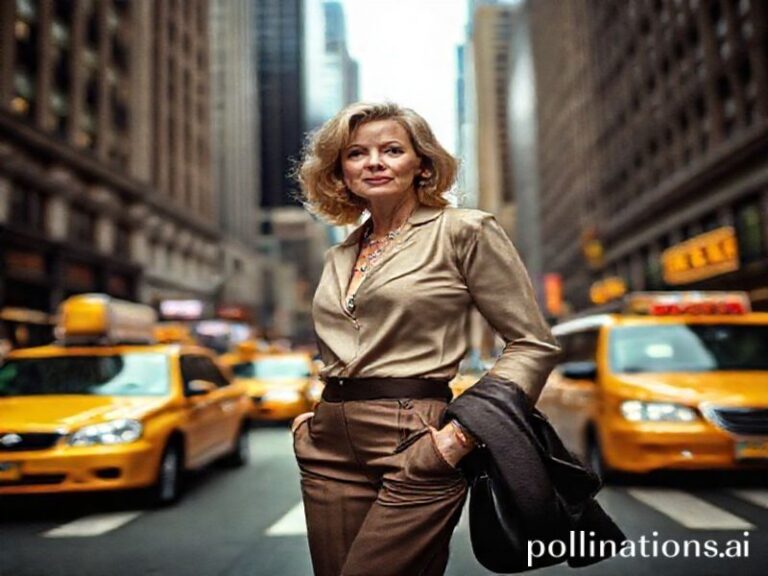Domhnall Gleeson: Ireland’s Gift to Global Anxiety Becomes the World’s Most Relatable Export
**From Dublin to Dystopia: Domhnall Gleeson and the Global Art of Looking Uncomfortable**
While the world burns, melts, or simply descends into whatever fresh hell the algorithm serves up today, there’s something perversely comforting about watching Domhnall Gleeson master the universal language of existential dread. The Irish actor has become our global ambassador for looking like he’d rather be anywhere else—a sentiment that resonates from Dublin to Delhi, from Copenhagen to Caracas.
Gleeson’s career trajectory reads like a prophecy for our times: start in wholesome British period pieces, then gradually migrate toward technological dystopias and psychological horror. It’s as if he’s been method-acting humanity’s collective journey from “Downton Abbey” optimism to “Black Mirror” nihilism. His portrayal of General Hux in the Star Wars franchise gave us a villain who looked like he’d accidentally wandered into fascism while trying to find a Starbucks—an accidental metaphor for how most of us feel about late capitalism.
But it’s his role as the android Caleb in “Ex Machina” that cemented Gleeson’s position as the patron saint of global technological anxiety. Here was a man discovering that his job, his purpose, and quite possibly his humanity itself were being rendered obsolete by lines of code. Sound familiar? It should—it’s the same face your Uber driver makes when discussing self-driving cars, or your accountant makes when someone mentions cryptocurrency.
The international appeal of Gleeson’s particular brand of unease transcends borders like a particularly anxious virus. In Japan, they call it “gureson-fu no fuan”—the Gleeson-style anxiety. In Brazil, his expression has become a meme captioned “quando você percebe que votou no candidato errado” (when you realize you voted for the wrong candidate). Even in the Scandinavian countries, where they’ve supposedly perfected work-life balance, Gleeson’s visage represents the creeping realization that their hygge can’t protect them from climate change or data harvesting.
What’s fascinating is how Gleeson’s Irishness—his very Dublin DNA of literary melancholy mixed with gallows humor—translates across cultures. He’s become a sort of export commodity, like Guinness but for existential dread. The French appreciate his je ne sais quoi of impending doom, while Germans admire his efficiency in conveying maximum discomfort with minimum facial movement. Even the Americans, who usually prefer their anxiety loud and pharmaceutical, have embraced his quiet desperation as a refreshing alternative to their usual performative panic.
His recent work in “The Patient” saw him playing a therapist turned captive—a role that metaphorically represents every educated professional watching their expertise become increasingly irrelevant in a world where TikTok influencers dispense mental health advice. It’s this quality—of being intelligent enough to understand the catastrophe but powerless to prevent it—that makes Gleeson the perfect actor for our age.
As we hurtle toward whatever fresh apocalypse awaits—climate collapse, AI takeover, or simply the continued existence of LinkedIn—Gleeson stands as our unlikely global icon. Not a hero, not a villain, but something far more relatable: a man who looks like he just remembered he left the oven on in a house that’s already been repossessed.
In a world where national borders seem increasingly arbitrary and cultural differences are simultaneously erased by streaming services and amplified by social media algorithms, Gleeson’s face of perpetual concern has become our universal language. He is the human embodiment of that moment when you realize the call is coming from inside the house, except the house is on fire, the call is from your student loan officer, and you’re fresh out of metaphors.
Perhaps that’s his greatest achievement: making anxiety look cosmopolitan.

